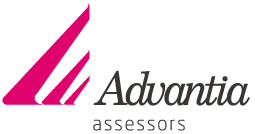Foreign investment in Andorra remained active in 2024, with notable movements in certain sectors. Although the property sector continued to grow, formalised direct investments decreased slightly, though the number of applications submitted was higher than in 2023. At the end of May, the statistics department of the Andorran government presented official data providing a detailed overview of the behaviour of foreign capital over the last year.
Table des matières :
- Comment la loi sur la croissance durable et le droit au logement modifie-t-elle le système fiscal andorran ?
Exonérations dans l’ITP pour favoriser l’accès au logement
Incitations fiscales pour la location à prix abordable
Pénalisation fiscale de la spéculation immobilière
Ajustements progressifs de l’impôt sur le revenu des personnes physiques
Nouveau règlement de la taxe sur les investissements immobiliers étrangers
Changements en matière de résidence
Foreign property increased by 25.8%
In 2024, foreign investment in Andorra’s property sector was 25.8% higher than that of the previous year. 541 applications were submitted, 111 more than in 2023.
In economic terms, the total value reached 378.5 million euros — 48% more than that of 2023. The average investment amounted to €699,699.
2024 set records both in the number of applications submitted and in the amount of capital invested.
This increase was largely due to the law governing the tax on foreign investment in property that came into force on 1st February, 2024. The new regulation modifies the requirements for acquiring property in the Principality, and stipulates that residents who have lived in Andorra for less than three years must also apply for authorisation to invest in property. This change has led to a significant increase in the figures.
Foreign direct investment: more applications, but fewer formalisations
In 2024, 1,297 applications for foreign direct investment were submitted in Andorra, which was 28.5% more than the 1,009 applications registered in 2023. However, the number of formalised operations decreased, falling from 794 in the previous year to 516 in 2024 — a decline of 35%.
This contrast between applications and actual investments reflects a trend that deserves monitoring. On the one hand, the growth in the number of applications indicates interest from foreign investors. On the other hand, the smaller number of formalisations may have been related to ongoing administrative processes, changes in business planning, or the time required to complete the relevant procedures.
In terms of economic volume, the value of direct investment in 2024 was 150,887,115 euros, which was lower than the 231,551,766 euros recorded in 2023.
Total foreign direct investment applications grew by 28.5%
To better understand the evolution of foreign direct investment in Andorra, it is important to analyse the details of the 1,297 authorisations granted in 2024, which represented a 28.5% increase over those of the previous year.
Of the total number of applications:
- 1,183 were favourable, compared to 949 in 2023.
- 58 were refused, compared to 22 in 2023.
- 36 are still ongoing and could be approved in 2025 if the requirements are met.
- 20 expired, which is an improvement on the 38 that expired in 2023.
- 516 have been formalised.
A favourable application is one that has passed all administrative and regulatory checks. Applications that have been rejected are those that were not deemed to be in the country’s interest, or that received a negative report from bodies responsible for preventing money laundering or for assessing the economic impact.
Applications that have expired are those that were not completed by the established deadline, usually due to a lack of documentation or pending requirements. Applications that are ‘in progress’ are awaiting a final resolution.
Finally, formalised investments are those that have been authorised and completed within their period of validity before an Andorran notary. Please note that the formalisation figure takes into account the date of the public deed, regardless of the date of issue of the corresponding authorisation.
Services and property: the two most in-demand sectors
In 2024, foreign direct investment in Andorra was primarily focused on the services sector, followed by property and, to a lesser extent, trade (both retail and wholesale). Together, these three sectors accounted for 118.1 million euros of the total initial investment of 150.8 million euros declared in formalised applications.
The services sector reflected an established trend, driven by projects related to business management and tourism. Meanwhile, the property sector continued to attract capital due to its relationship with asset management structures. Although lower in volume, the retail sector maintained a stable level of activity.
France and Spain: the main investors in Andorra
Of the 516 investment applications formalised in 2024, 197 came from Spain and 175 from France. This consolidates both countries’ positions as the main issuers of foreign capital in Andorra. However, there were fewer applications than in the previous year: Spain recorded a 37.9% decrease, and France a 28.3% decrease.
Third place went to applications made through Andorran companies with a majority foreign shareholding (more than 50% of shareholders being non-residents).
Finally, there were 17 investments from the UK, which is a figure similar to that of 2023.
The state of foreign investment in 2024
The data on foreign investment in Andorra in 2024 reflect an active and evolving scenario. The surge in foreign investment applications confirms that the Principality remains an attractive locality for international capital thanks to its stability, legal security, and competitive business environment.
Last year was marked by significant legislative changes, including the introduction of a tax on foreign real estate investment on 1st February, 2024. This measure has resulted in a change in the requirements for access to property for non-residents and new residents who have lived in the country for less than three years.
The next steps in investment
In 2025, the new Law on Sustainable Growth and Housing Rights (popularly known as the Omnibus Law), will take effect. Among other things, it will change the requirements for residence. This new legislation will directly affect the profile of the typical investor by modifying the requirements for obtaining active and passive residence, as well as the conditions for acquiring property in the Principality.
It will therefore be important to observe how investors adapt to these new requirements and what effect they will have on the number and nature of applications.



